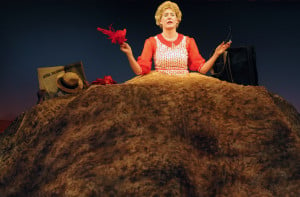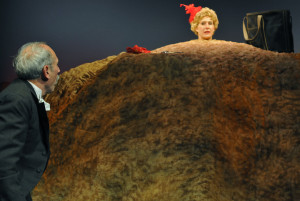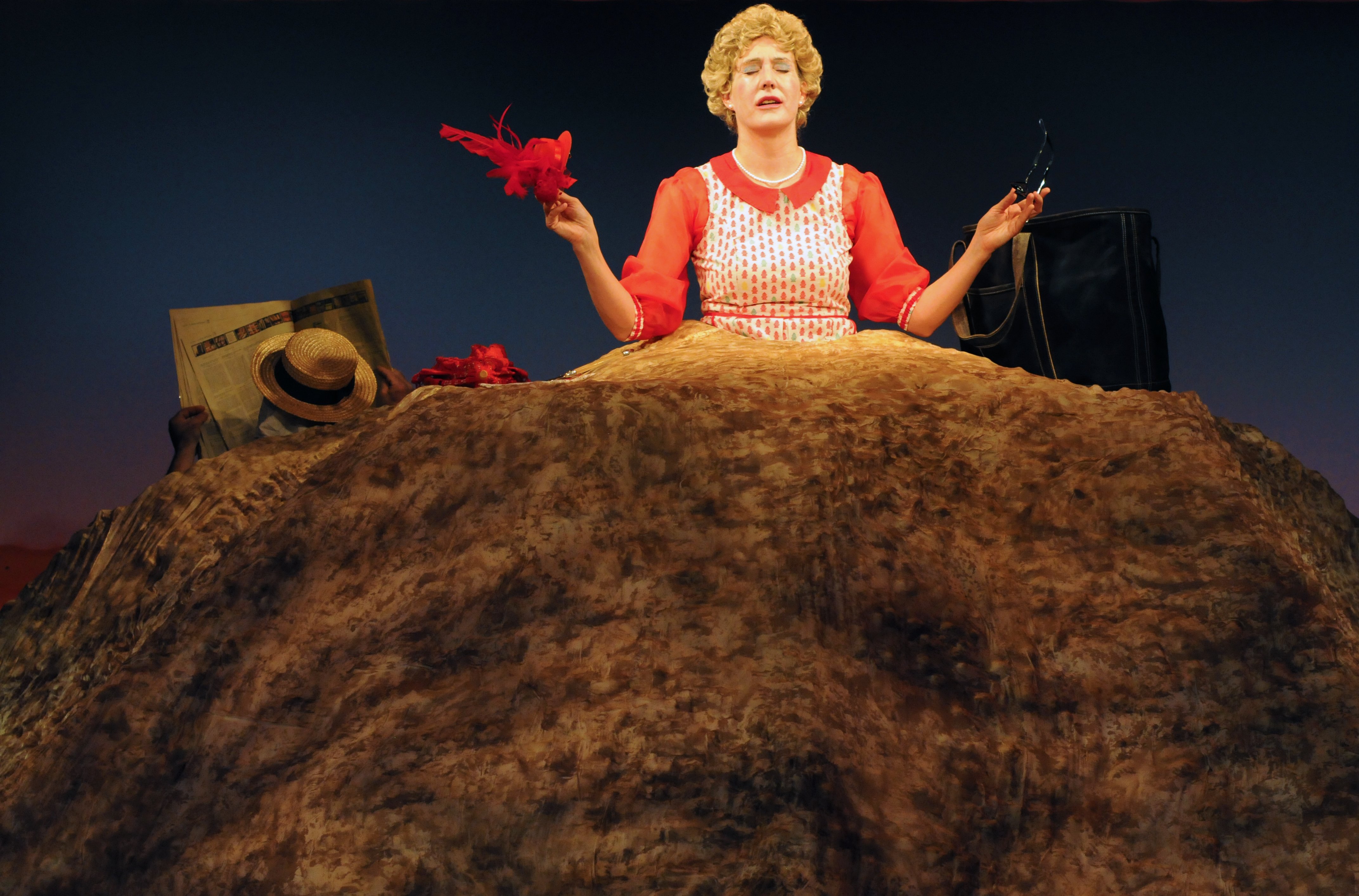
Associated with the “Theater of the Absurd,” Samuel Beckett’s avant-garde play “Happy Days” – the final production of Stanford Summer Theater (SST)’s 15th season — is a tragicomedy depicting the daily life of Winnie, a woman buried up to her waist in a mound of earth. Despite her harrowing position, Winnie goes about her life with remarkable optimism — even while performing mundane everyday tasks – in a performance that successfully uses humor and whimsicality to leave viewers questioning the meaning of loneliness and the purpose of one’s existence.
The play’s text itself is a short 70 pages and half of that is purely stage directions, while the rest is almost entirely a monologue spoken by Winnie. As a result, reading “Happy Days” is a choppy, unusual experience that provides little flexibility in interpreting the characters’ exact expressions and movements. However, SST’s live performance offers a much smoother experience that adds meaning to the story.
The first act introduces the audience to the main character of Winnie (Courtney Walsh), a woman in her 50s, and Willie (Don DeMico), her unseen elderly male companion who offers a lumbering yet haunting figure drained of human emotions. The curtain opens on Winnie, already buried in dirt, against a simple desert-like backdrop. Throughout her day, she pulls various items out of her bottomless black bag and commences her daily routine while talking incessantly to the nearly silent Willie. She reminisces about her past while also assuring herself that “this is going to be another happy day!” Although she attempts to maintain a positive outlook on life, however, sometimes sudden sadness breaks in and reminds the audience of her bleak future.

Throughout the play’s full 85 minutes, Winnie remains in one place, albeit while becoming increasingly less visible – by the second act only her head is visible and she cannot turn her neck. However, Beckett continues to insert endless stage directions from her facial expressions down to the movement of her eyes and Walsh meets those demands with a commanding performance, complete with a booming voice that reaches every seat in the small Nitery Theater and smooth transitions between repetitive tasks and distant thought that convey emotions of love, loss and loneliness.
